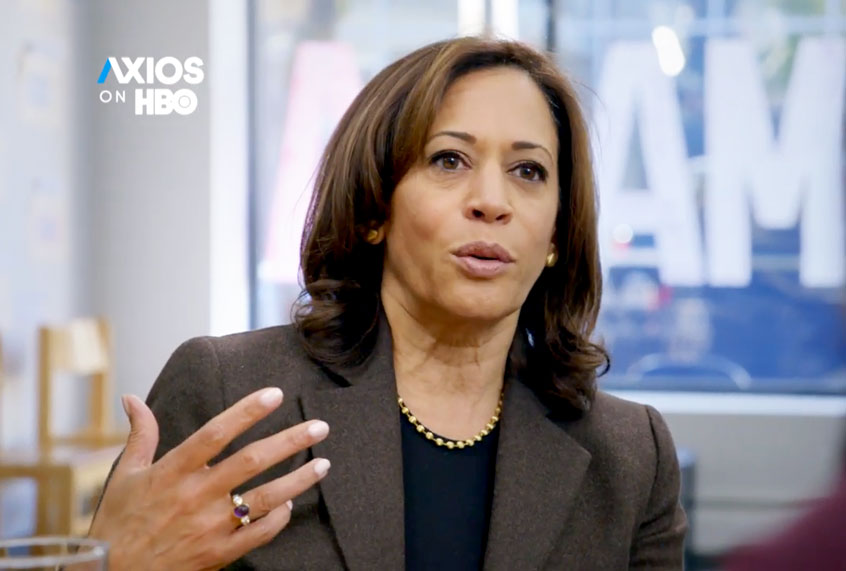Sen. Kamala Harris, D-Calif., said running for president as a woman of color in the 2020 election is different than vying for the position as a black man or as a white woman.
In an interview with “Axios on HBO,” Harris, who is of Indian and Jamaican descent, said the question of electability had emerged as “the elephant in the room about my campaign.”
“Essentially, is America ready for a woman and a woman of color to the president of the United States?” she asked.
Harris, who is currently in fifth place in polls of the Democratic primary, said she had begun to “be more candid” or speak with “a candor in terms of the politics of the race” during her town halls and rallies, because if elected, she would not only become the first female president but also the first black woman president.
“When there is not a reference point for who can do what, there is a lack of ability or a difficulty in imagining that someone who we have never seen can do a job that has been done, you know, 45 times by someone who is not that person,” the senator said.
Early in the summer, Harris leaped into second place in national polls after her much-lauded performance at the first Democratic debate, but since then she has trailed former Vice President Joe Biden, Massachusetts Sen. Elizabeth Warren, Vermont Sen. Bernie Sanders and South Bend Mayor Pete Buttigieg.
In the 2020 race, Harris, a former district attorney and attorney general in California, has pitched herself as a history-making candidate who can appeal to both progressives and the party’s moderate wing. Rather than trying to overhaul the nation’s health care system like Warren or Sanders or insist on reaching across the aisle to Republicans like Biden or Buttigieg, Harris has bet on an incremental approach to bridge the growing ideological gap between the Democratic Party.
Harris’ middle-ground approach can be seen clearly by looking at her health care proposal. Her plan calls for moving every American into a government-sponsored “Medicare for All” system within ten years, while allowing private insurers to offer competing plans. The measure has been considered a watered-down version of Sanders’ sweeping plan, which would create a government-run system to cover all Americans within four years and eliminate private insurance.
Though Harris at first embraced Sanders’ plan and co-sponsored his Medicare for All legislation, she since unveiled her own proposal in July. Harris told Axios she changed her approach to Medicare for All after learning how many Americans feel strongly about keeping their private health insurance.
“I have publicly and will always applaud Bernie for what he did to bring this conversation to the place that it now exists,” she said, but added, “I heard from people, ‘Kamala, don’t take away my choice if I want a private plan. Please don’t take away my choice.’ And I said, you know what? That is fair.”
“I said to my team, I know we’re going to take a political hit for it . . . I knew I’d be called a flip-flopper for that,” she continued. “But here’s the thing. I plan to govern . . . Just because it might get you political points, that’s not what people want. They want a leader who actually sees them as responsive to their needs, and is honest and willing to have the courage to maybe take a political hit.”
“I’m never going to apologize for listening to people and then deciding, ‘Hey, they’ve got a point. This can be better,'” she said.

